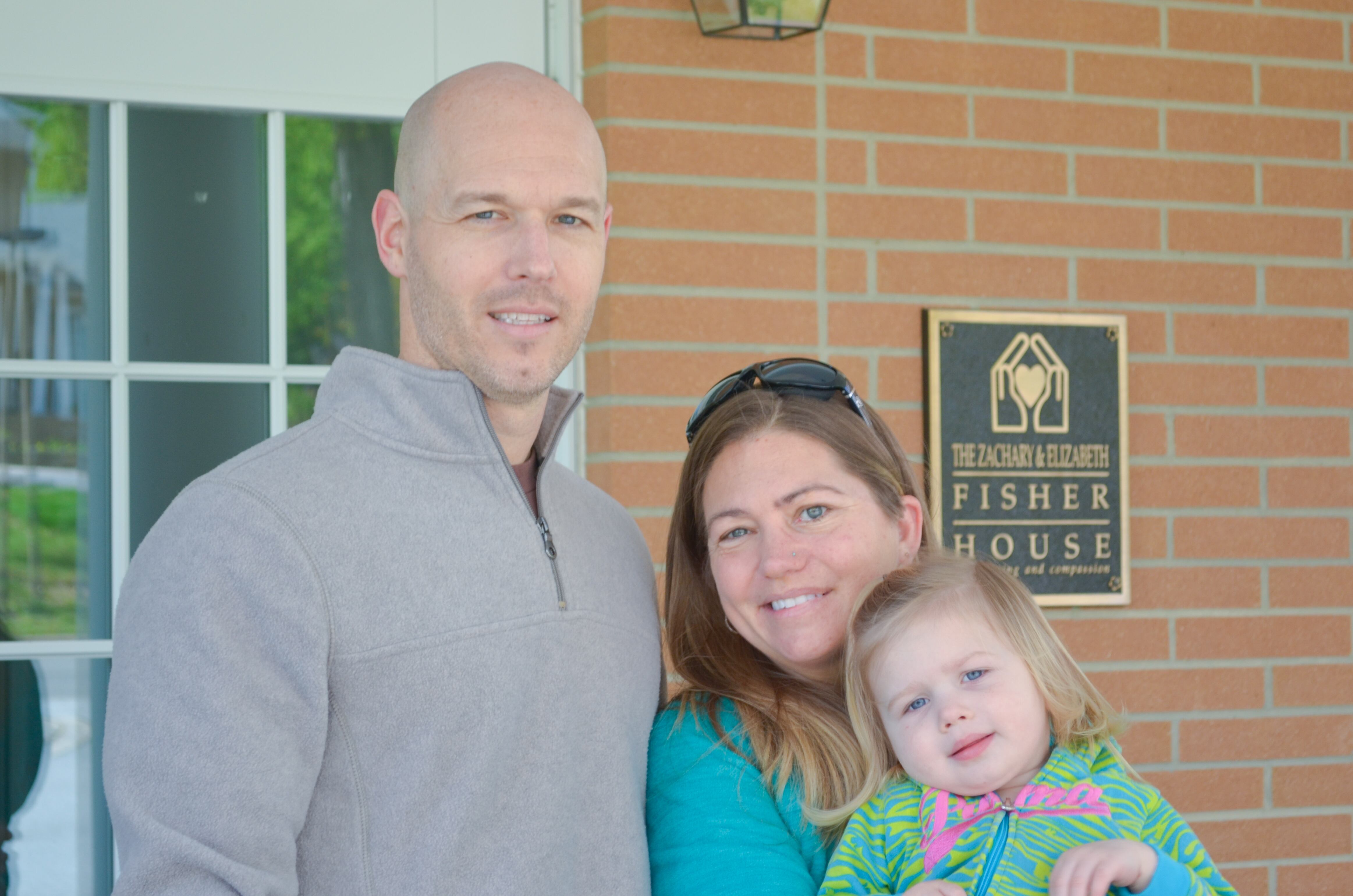By Michelle Baldanza
Late last summer, the Gaspar Family was in for big changes. The Air Force family of five had been reassigned to Kadena Air Base, Japan where Maj. Ian Gaspar would serve as a pharmacist.
Throughout the Fall, Ian, his wife, Kimberly, their two teenagers, Cydney and Noah, and toddler, Gwyndolyn, settled into their new home.
Kimberly felt worn out but attributed this to the stress of the move. By November, however, things had gotten worse. She was starting to get clumsy, she was forgetful, and she even fell. At this point, they knew it was more than fatigue.
The initial diagnosis was Multiple Sclerosis, but an MRI confirmed it was actually a very rare brain tumor. The neurosurgeon they met with recommended treatment at Walter Reed National Military Medical Center, where Kimberly could receive not only the surgery she needed, but also the longer-term support for recovery.
They received this diagnosis on December 20. Things began happening very quickly. The family of five packed two suitcases each and traveled to Bethesda, Maryland where they were welcomed into the Bethesda Fisher House.

On January 10, Kimberly and Ian met with her new neurosurgeon at WRNMMC and in early February, she underwent an extensive two-day surgery to remove the tumor. Then the long recovery process finally began during which she would receive 30 treatments of radiation therapy to reach what couldn’t be removed during surgery.
“Being here at the Fisher House was great because we could just walk to the hospital.” said Ian. “She had multiple appointments every week with physical training, speech therapy, and working on her vestibular and cognitive abilities.”
Coping during COVID-19
When the Gaspar Family left Japan, they knew that traditional school wasn’t an option for the next year. Cydney and Noah were already doing distance learning when schools shut down because of COVID-19 and the rest of America followed suit.
Ian also explained that the staff was very helpful with explaining the precautions put in place as COVID-19 spread throughout the country. “We really appreciate the openness and the way everything was handled. It made us feel comfortable,” he said.
“Before this experience we heard of the Fisher House but didn’t really know how large an organization it was, but since, we will never forget the impact the foundation had during a significant part of our life,” said Ian. “Though we were given much support from many different contributors, the Fisher House played a significant part, one that we feel we may never be able to repay. A safe, warm and supportive, communal household where we can keep our family intact and persevere, while my wife received her much-needed care, at the hospital which was a few minutes' walk away. For that we will always be grateful for the support given by the Fisher House Foundation.”
The prognosis is good, but doctors anticipate Kimberly will continue to need care for two to three years as she recovers. The Air Force granted a request for reassignment to Wright-Patterson Air Force Base in Ohio, allowing them to be close to family in Indiana and the top-rated neurosurgery department at The Ohio State University Wexner Medical Center. The Gaspars relocated to their new assignment at the end of July, finally getting to settle into a home after a year of unknowns.
About Fisher House Foundation
Fisher House Foundation is best known for its network of 90 comfort homes where military and veterans' families can stay at no cost while a loved one is receiving treatment. These homes are located at major military and VA medical centers nationwide, and in Europe, close to the medical center or hospital they serve. Fisher Houses have up to 21 suites, with private bedrooms and baths. Families share a common kitchen, laundry facilities, a warm dining room and an inviting living room. Fisher House Foundation ensures that there is never a lodging fee. Since inception, the program has saved military and veterans' families an estimated $500 million in out of pocket costs for lodging and transportation.
Fisher House Foundation also operates the Hero Miles Program, using donated frequent flyer miles to bring family members to the bedside of injured service members as well as the Hotels for Heroes program using donated hotel points to allow family members to stay at hotels near medical centers without charge. The Foundation also manages a grant program that supports other military charities and scholarship funds for military children, spouses and children of fallen and disabled veterans. www.fisherhouse.org





